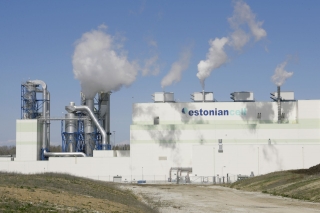Energy, Estonia, Good for Business, Investments, Markets and Companies
International Internet Magazine. Baltic States news & analytics
Tuesday, 16.04.2024, 17:24
Estonian Cell planning EUR 17 mln investment
 Print version
Print version |
|---|
"From the perspective of energy intensive industry, this is
undoubtedly a positive step. Namely, due to regulated energy taxes and network
fees, we pay 4-6 million euros more each year compared with a factory with the
same consumption volume in Finland, Sweden, Germany and Austria. The
impact is large financially, as Estonian
Cell consumes approximately 2.5 percent of all electricity used in
Estonia," Siiri Lahe,
member of the management board of Estonian
Cell, told BNS.
Lahe said that the excise duty on electricity is one of three factors
alongside renewable energy fees and network fees that impacts competitiveness.
"Implementing a reduced rate for the excise duty is hopefully the first
notable step for reducing energy taxes. In order to establish a second factory
next to the current one, a progressive change would be required in all three
components," he said.
"We hope that the draft legislation concerning the reduced rate of the
excise duty on electricity will receive the parliament's approval in the next
few months. This will determine our owner's decision whether to start a smaller
investment program developed in the factory, the total cost of which is more
than 17 million euros," Lahe said. The company is prepared to start
with the investment program already this year.
She said that the additional growth investments expect larger and
progressive changes in energy taxes. "With a view toward the distant
future, we have discussed both the elimination of additional production volume
bottlenecks in the existing factory as well as the construction of a second
line or factory next to the existing one," she said.
"As the latter investment in millions of euros would have a
three-digit number, it would require greater legal certainty than today, but
also significantly lower energy taxes for ensuring production with a
competitive price. The impact of energy taxes is especially important for an
energy intensive exporting industry. Namely, nobody will pay more for the
Estonian product on the global market just because the production cost is
higher by regulated components than that of the competitors," Lahe
said.
Lahe said that when it comes to this topic, it is remarkable that since the
moment implementing excise duty on electricity and gas in Estonia, there have
been complete tax exemptions for certain energy intensive industries. The
reduced excise duty rate follows the suggestions of the EU directive and
is a logical step towards also ensuring the competitiveness of the energy
intensive industries of other sectors on international markets.
The Estonian government at a sitting on Thursday approved law amendments,
with which the electricity excise duty rate of energy intensive industrial
companies will be reduced 90 percent from the current 4.47 euros to 0.5 euros per
megawatt-hour. Once approved by the parliament, the law is to enter into force
on Jan. 1, 2019. Companies that receive the reduced excise duty license in
2019, can apply for partial excise duty return for their consumption in 2018.








 «The Baltic Course» Is Sold and Stays in Business!
«The Baltic Course» Is Sold and Stays in Business!

